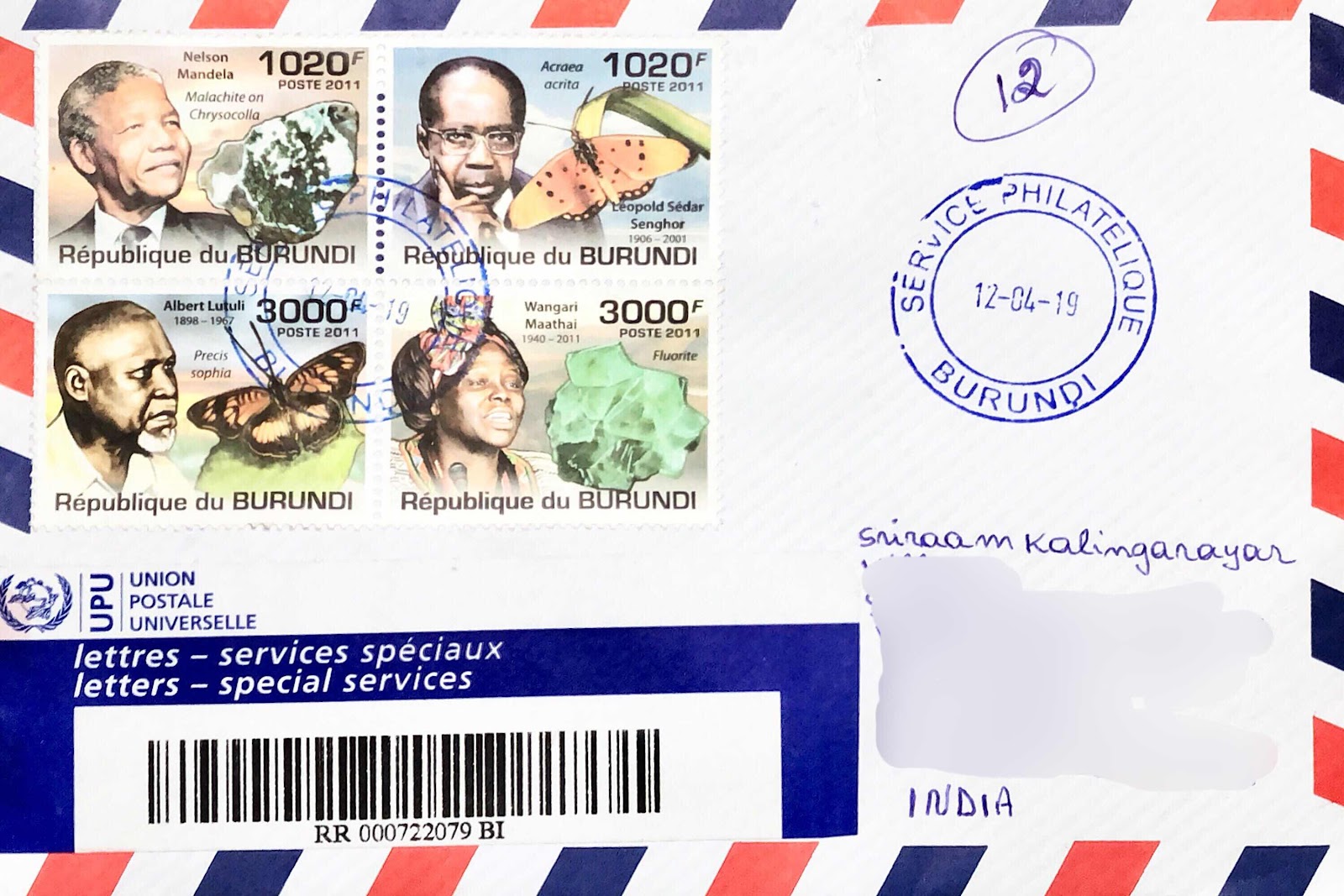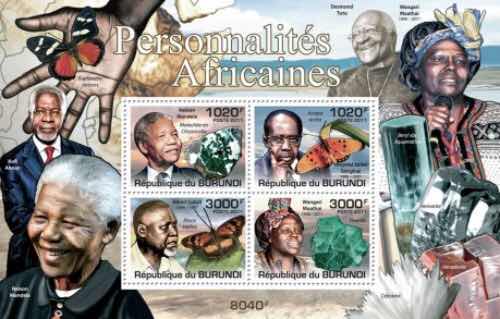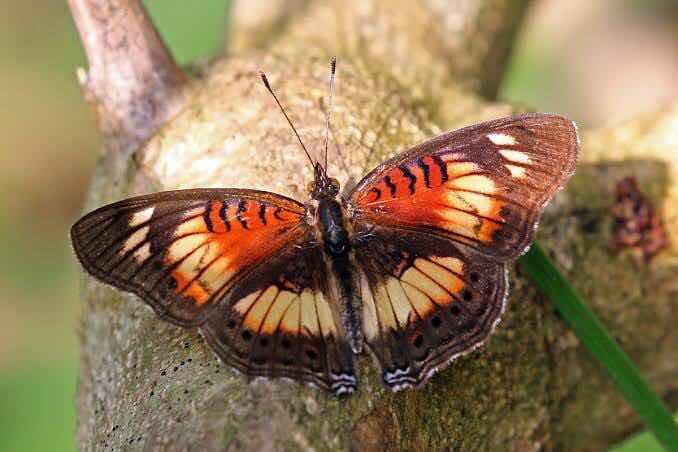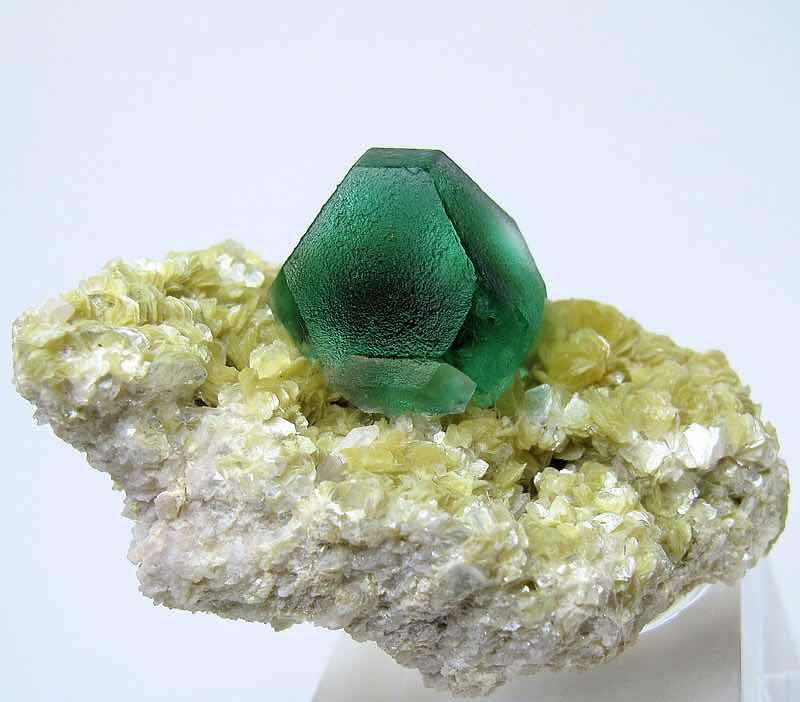
An Airmail cover from Republic of Burundi 🇧🇮
Burundi, officially the Republic of Burundi is a landlocked country amid the African Great Lakes region where East and Central Africa converge. The capital is Gitega, having moved from Bujumbura in February 2019. The southwestern border is adjacent to Lake Tanganyika.
The Twa, Hutu and Tutsi peoples have lived in Burundi for at least 500 years. For more than 200 of those years, Burundi was an independent kingdom, until the beginning of the 20th century, when Germany colonised the region. After the First World War and Germany's defeat, it ceded the territory to Belgium. Both Germans and Belgians ruled Burundi and Rwanda as a European colony known as Ruanda-Urundi.
Burundi gained independence in 1962 and initially had a monarchy, but a series of assassinations, coups and a general climate of regional instability culminated in the establishment of a republic and one-party state in 1966.

African Personalities
Issue - December 2011
Nelson Mandela and Malachite
Description
Nelson Rolihlahla Mandela was a South African anti-apartheid revolutionary, political leader, and philanthropist who served as President of South Africa from 1994 to 1999. He was the country's first black head of state and the first elected in a fully representative democratic election. Malachite was given this name due to its resemblance to the leaves of the mallow plant. Malachite often results from the weathering of copper ores, and is often found together with azurite, goethite, and calcite. Except for its vibrant green color, the properties of malachite are similar to those of azurite and aggregates of the two minerals occur frequently.
Léopold Sédar Senghor & Acraea acrita
Léopold Sédar Senghor was a Senegalese poet, politician, and cultural theorist who, for two decades, served as the first president
of Senegal
(1960–80). Ideologically an African socialist
, he was the major theoretician of Négritude
. Senghor was also the founder of the Senegalese Democratic Bloc party. 
Acraea acrita, the fiery acraea, is a butterflyof the family Nymphalidae. It is found in large parts of Africa.

Albert John Luthuli & Precis sophia
Albert John Lutuli, also known by his Zulu name Mvumbi, was a South African teacher, activist, Nobel Peace Prize winner, and politician. Luthuli was elected president of the African National Congress (ANC) in 1952, at the time an umbrella organisation that led opposition to the white minority government in South Africa, and served until his accidental death. He was awarded the 1960 Nobel Peace Prize for his role in the non-violent struggle against apartheid. He was the first person of African heritage to be awarded the Nobel Peace Prize. Luthuli was a lay preacher of the United Congregational Church of Southern Africa (UCCSA) based at its Groutville Congregational Church in Stanger, KwaZulu Natal, where Luthuli was laid to rest upon his passing in 1967.
 Preics sophia is a butterfly in the family Nymphalidae. It is found in Senegal, the Gambia, Guinea-Bissau, Guinea, Sierra Leone, Liberia, Ivory Coast, Burkina Faso, Ghana, Togo, Nigeria, Cameroon, Angola, the Democratic Republic of the Congo, Uganda, Rwanda, Burundi, Kenya, Ethiopia, Tanzania, Malawi, and Zambia. The habitat contsists of forests and savanna.
Preics sophia is a butterfly in the family Nymphalidae. It is found in Senegal, the Gambia, Guinea-Bissau, Guinea, Sierra Leone, Liberia, Ivory Coast, Burkina Faso, Ghana, Togo, Nigeria, Cameroon, Angola, the Democratic Republic of the Congo, Uganda, Rwanda, Burundi, Kenya, Ethiopia, Tanzania, Malawi, and Zambia. The habitat contsists of forests and savanna.
Wangari Maathai & Fluorite
Wangarĩ Muta Maathai was a renowned Kenyan social, environmental and political activist and the first African woman to win the Nobel laureate. She was educated in the United States at Mount St. Scholastica and the University of Pittsburgh, as well as the University of Nairobi in Kenya.
Fluorite is a colorful mineral, both in visible and ultraviolet light, and the stone has ornamental and lapidary uses. Industrially, fluorite is used as a flux for smelting, and in the production of certain glasses and enamels. The world reserves of fluorite are estimated at 230 million tonnes (Mt) with the largest deposits being in South Africa (about 41 Mt).

No comments:
Post a Comment